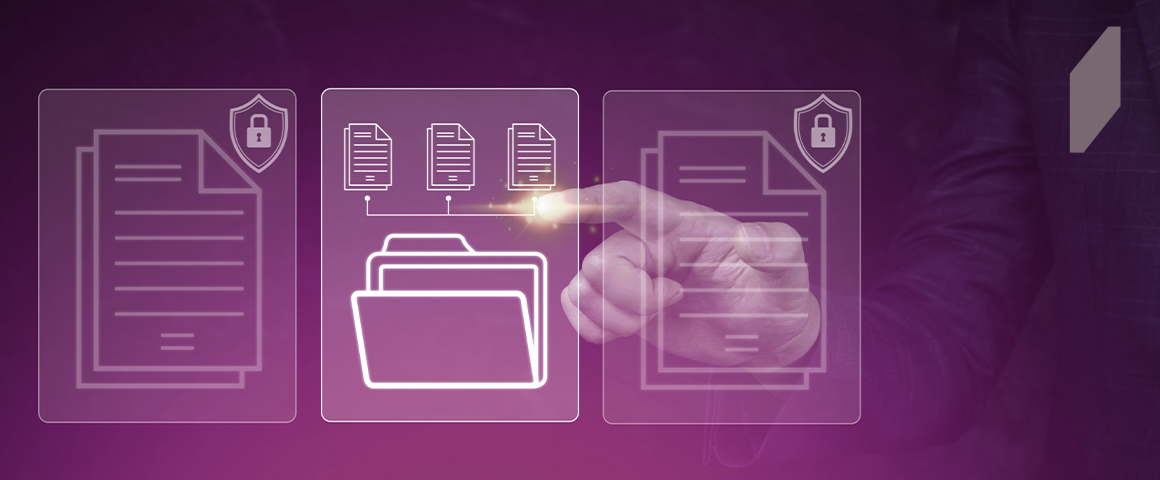What is a Contract Repository? Centralized Contract Management Guide
Contracts form the backbone of all business relationships and obligations. Yet for many organizations, these critical documents lie scattered across file cabinets, local drives, email inboxes, and disconnected systems.
A shocking 10% of contracts go missing entirely, according to Faulkner Information Services. This disorganized state prevents companies from efficiently managing and retrieving contractual information when they need it most.
The solution is to establish a centralized contract repository – a single, secure database where an organization can store, monitor, and analyze its entire contract portfolio. A contract repository acts as the definitive source of truth about third-party agreements, service levels, renewal dates, and more. With a contract repository management system in place, businesses gain complete visibility into this vital data instead of dealing with dispersed, fragmented information silos.
As companies mature their contract operations – and may rank up to 20-40 thousand agreements – centralized repository capabilities become increasingly essential. Manual, ad-hoc approaches may have sufficed in earlier stages, but quickly become unsustainable as contract volumes grow and regulatory/compliance requirements expand. To truly transform contracts into a strategic asset, a robust, intelligent contract repository is required.
The Problems with Decentralized Contract Management
Without a centralized contract repository system in place, organizations inevitably suffer from major contract management inefficiencies and risks. The most fundamental issue is the scattered nature of agreements (and their different versions) stored across many different locations – local computers, email inboxes, cloud storage, physical file cabinets, and more. This fragmented approach makes it extremely difficult to get a holistic view of contractual obligations and commitments.
Finding the right contract or key clause becomes a time-consuming ordeal of hunting through folders, drives, and inboxes. Even when a contract is located, the search is often not over – you may only have an outdated version readily available. Poor version control and the inability to track changes open the door to people working off inaccurate documents.
The decentralized contract repository tools and ad-hoc approaches utilized by many businesses make it alarmingly easy to miss auto-renewal dates or other critical deadlines specified in agreements. This contract repository issue translates directly into compliance risks, termination fees, litigation exposure, and revenue leakage.
Beyond the operational pains and potential penalties, the larger tragedy is the opportunity cost imposed by manual, disjointed contract management procedures. Legal operations staff spend much more of their time on low-value, administrative tasks like searching for agreements than they should – that’s time that can’t be spent on higher-level responsibilities and strategic priorities.
Rather than driving the business forward, employees become mired in the tedious busywork of chasing down documents, dealing with versioning conflicts, and desperately trying to compile basic data on contracted products, services, and pricing. This chronic inefficiency is simply unsustainable for companies aiming for growth and competitive advantage.
The Cost of Poor Contract Management
The costs resulting from inadequate contract management practices are staggering.
Research by WCC found that poor contract management leads to a leakage of 9% of annual revenues.
For a company with $1 billion in revenues, that equates to $90 million in unnecessary costs and missed revenue opportunities each year, which could be significantly decreased, or even nullified, with a well-organized contract repository.
What is a Modern, Centralized Contract Repository?
The contract repository meaning has evolved considerably with the advent of cloud-based technology and artificial intelligence. A modern, centralized contract repository is a secure, digital database that consolidates all of an organization’s contracts and related documents into a single source of truth.
At its core, a centralized contract management repository provides document storage capabilities that finally put an end to agreements being scattered across disparate locations and silos. All current and historical contracts can be uploaded and accessed from this central hub, with robust security controls and permissions to restrict unauthorized access.
However, a truly intelligent contract repository system goes far beyond just housing documents. It applies AI and machine learning capabilities to extract every critical data point contained within the contracts. This could include details like:
- Contracted product/service descriptions and pricing
- Auto-renewal and expiration dates
- Service level agreements and deliverable milestones
- Limitation of liability, indemnification, and other risk clauses
- Party contact information and obligations
This structured data is seamlessly connected and surfaced for search, analysis, reporting, and more. Leading contract repository tools use artificial intelligence to proactively identify areas of risk, underperformance, and revenue leakage based on consolidated contractual data.
The modern, centralized contract management repository stands in stark contrast to the manual, fragmented approach that has stressed businesses for decades. The traditional method involved contracts being stored locally on employee computers, email inboxes, physical filing cabinets, or basic cloud drives and SharePoint sites.
Even if agreements were all successfully consolidated into a shared drive, finding specific clauses or data points would require manually opening and searching through each document. There was no easy way to surface insights across the entire contract portfolio. Collaboration was difficult, version control was poor, and compliance risks were rampant.
The state-of-the-art contract repository eliminates these antiquated pain points while transforming contracts from a nuisance into an intelligence asset. Business users can easily search and retrieve the latest versions while legal teams gain complete transparency into obligations, milestones, and areas of exposure. Leaders can leverage the wealth of contractual insights to optimize vendor relationships, control costs and mitigate risks.
Key Features to Look for in a Contract Repository Tool
When evaluating contract repository solutions, there are several critical capabilities to prioritize to maximize efficiency and minimize risk. First and foremost is the advanced search functionality that allows you to quickly surface any contract or clause across your portfolio using robust filters and full-text scanning. This ensures you can retrieve the information you need without laborious manual efforts.
AI-powered data extraction and summarization are other must-have features. This puts an end to hunting through volumes of legalese by automatically surfacing key terms, dates, obligations, and risk areas in a digestible format. The AI gets smarter over time at identifying your organization’s most important data points.
Integrations that allow the contract repository to connect with other core business systems like CRM, ERP, procurement, and document management tools are also essential. This promotes contract data being seamlessly shared across teams and processes.
For a secure contract repository, look for granular permissions controls that restrict repository access based on roles, departments, or other criteria. You’ll also want full audit trails and version tracking to maintain data integrity.
Finally, automated alerts and notifications around contract deadlines, milestones, and renewal dates are critical for staying on top of your commitments. The best tools apply AI to proactively flag potential disruptions and revenue leakage based on upcoming contractual events.
With a centralized repository equipped with advanced capabilities like these, contracts can finally become an intelligence asset rather than an administrative burden.
Transforming Contract Management with a Central Repository
A modern, centralized contract repository completely transforms how organizations can leverage the valuable data and commitments contained within their agreements. Rather than contracts being fragmented liabilities, they become integrated business assets driving strategy and decision-making.
Contracts as a Core Business System
By consolidating all contracts into a secure, digital repository connected to other core systems, commitments can finally be managed holistically as an integration touchpoint across functions like procurement, finance, sales, and legal.
Contract data flows seamlessly into other business processes instead of being siloed. This allows organizations to build consistent contract operations, playbooks, and analytics as a centralized function touching all departments and partnerships.
Contractual Obligations and Risks
The centralized repository with AI-powered data extraction provides complete visibility into every obligation, service level agreement, limitation of liability, renewal date, and other commitment across the entire contract portfolio.
Rather than stakeholders being unaware of issues until they have already caused damage, potential risks around compliance, non-performance, and revenue leakage are automatically surfaced and flagged by the intelligent repository. This shift from reactive to proactive contract management lets organizations get ahead of problems before they occur.
Process Tracking
By establishing a centralized contract repository as the definitive source of truth, organizations can streamline critical processes that used to be highly manual and prone to costly errors. Automated notifications eliminate the need to manually track every single renewal date across thousands of agreements.
AI-extracted data makes it simple to verify compliance with regulatory requirements or internal policies. Organizations gain full transparency into supplier performance against SLAs and other contractual metrics to ensure commitments are being fulfilled as promised.
Improving Collaboration
With a cloud-based central repository, all stakeholders can access the latest contract information based on their permissions. Legal, procurement, finance, and business teams can collaborate seamlessly on managing commitments instead of dealing with versioning conflicts.
The AI-powered insights provide a comprehensive, consistent view so functions can align on key obligations, deadlines, risks, and opportunities contained within their shared contract portfolio.
Extracting Strategic Intelligence from Contract Data
While the centralized repository solves core challenges around storage and retrieval, the true value lies in the strategic intelligence it can extract from the consolidated contract data. AI capabilities analyze the full portfolio to identify areas of risk, opportunity, and optimization that would otherwise go unnoticed.
This could include insights around revenue leakage from unfulfilled commitments, exposure from liability clauses, cost savings potential through renegotiations, and more. Organizations gain powerful decision-making advantages by transforming their contracts into an analyzable data asset.
Intelligent Contract Insights – An Example
An AI-powered contract management solution can scan all supplier agreements to identify which SLAs are routinely being missed and flag them for penalty enforcement or renegotiation.
It could calculate the maximum liability exposure based on indemnification clauses across high-risk contracts. Or it could analyze historical pricing data to identify opportunities to secure more favorable discounts from vendors during upcoming renewals. These types of proactive insights allow organizations to get ahead of risks and opportunities.
Implementing a Centralized Contract Repository
Implementing a centralized, intelligent contract repository requires careful planning and change management – but the rewards make the effort extremely worthwhile.
The first step is to honestly assess your organization’s current contract management maturity level. If agreements are stored haphazardly across local drives, email, and filing cabinets with limited searchability, you likely have a low baseline. More mature operations with existing cloud repositories or CLM systems in place can take a more accelerated approach.
From there, it’s critical to gather requirements from all core stakeholders – legal, procurement, finance, sales, and any other functions involved with contracting processes. Their specific use cases and pain points must be addressed. For example, does legal need advanced AI capabilities to extract essence metadata and simplify document review? Does procurement require embedded authoring and negotiation tools?
Once requirements have been defined, the next major workstream is data migration from existing contract repositories into the new centralized system. This could involve uploading documents from SharePoint sites, moving data out of contract management databases, or simply digitizing hardcopy contracts stored in filing cabinets. Experienced solution providers can assist with this process to ensure data fidelity.
User training and change management workstreams should run in parallel to make sure employees across the organization understand how to access and leverage the new contract repository capabilities. This extends beyond technical training to transforming processes, roles, and responsibilities to align with the new centralized approach. Well-crafted rollout plans are critical for achieving full user adoption and ROI.
Speaking of ROI – it’s important to instrument measurement processes up-front to quantify the benefits and optimize over time. Areas to capture include time savings, cost avoidance from improved compliance, revenue optimization from maximizing discounts and minimizing leakage, and more. With the powerful data insights surfaced by AI-powered smart contract repositories, demonstrating ROI becomes straightforward.
Conclusion
In summary, the introduction of a centralized contract repository significantly improves business processes. This strategic shift streamlines contract management, reduces risk, and leverages contracts as dynamic assets that influence and drive strategic decisions. By integrating advanced technologies, organizations can access key insights, improve compliance, and increase efficiency across all departments.
Implementing a centralized system not only protects revenue but also transforms contractual obligations into opportunities for growth and competitive advantage. It’s time to transform your contract management — centralize, optimize, and excel.






